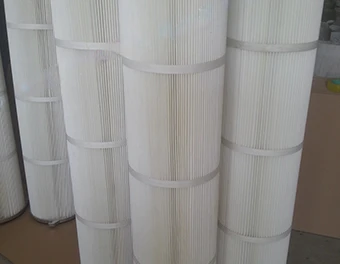 Tel:
+8618931101301
Tel:
+8618931101301
nov. . 06, 2024 19:39 Back to list
High-Performance Stainless Steel Filter Cartridges for Optimal Filtration Solutions
The Importance of Stainless Steel Filter Cartridges in Modern Filtration Systems
In the realm of industrial filtration, stainless steel filter cartridges have emerged as a crucial component, fostering efficiency, durability, and reliability in various applications. These cartridges serve as essential filtration devices in sectors ranging from pharmaceuticals to food processing, chemicals, and even in water treatment systems. Their popularity can be attributed to their unique properties and advantages over traditional filter materials.
Key Properties of Stainless Steel Filter Cartridges
One of the defining characteristics of stainless steel filter cartridges is their corrosion resistance. Stainless steel, primarily composed of iron, carbon, and chromium, forms a protective layer that prevents rust and degradation, even when exposed to harsh chemical environments. This resilience makes stainless steel cartridges ideal for applications involving aggressive fluids or caustic substances.
Moreover, stainless steel filters offer mechanical strength that surpasses that of plastic or other metal filters. They can endure high pressures and temperatures, making them suitable for demanding industrial processes. This robust design extends the lifespan of the filtration system, resulting in reduced maintenance costs and minimized downtime due to filter replacements.
Another significant advantage is the hygienic nature of stainless steel. In industries where cleanliness is paramount, such as food and beverage or pharmaceuticals, stainless steel filters can be sanitized easily. Their non-porous surface doesn’t harbor bacteria, making them an excellent choice for applications where contamination must be avoided at all costs.
Versatility in Application
The versatility of stainless steel filter cartridges can be seen across various applications. In the food and beverage sector, they are employed to remove impurities from liquids, ensuring product quality and safety. In chemical processing, these filters help to maintain the integrity of raw materials and finished products by effectively trapping contaminants.
stainless filter cartridge

In water treatment, stainless steel filter cartridges are indispensable in both municipal and industrial settings. They play a vital role in ensuring the clarity and quality of water by removing sediments, bacteria, and other pollutants. With the growing concerns regarding water quality and sustainability, stainless steel filtration systems provide a long-term solution to enhance purifying processes.
Environmental Considerations
Another aspect that makes stainless steel filter cartridges a preferred choice is their eco-friendly nature. Unlike disposable filters made from single-use plastics or other materials, stainless steel filters are designed for longevity. They can be cleaned and reused multiple times, significantly reducing waste generation. This aligns with the increasing demand for sustainable practices in industries globally.
Moreover, the recyclable nature of stainless steel further benefits the environment. At the end of their lifecycle, these cartridges can be recycled and repurposed, decreasing the overall environmental impact.
Conclusion
In conclusion, stainless steel filter cartridges represent a key advancement in the field of filtration technology. Their unique combination of durability, versatility, and environmental benefits makes them an invaluable asset across numerous industries. As companies continue to seek reliable and sustainable filtration solutions, the demand for stainless steel cartridges is likely to grow. Investing in these advanced filtration systems not only enhances operational efficiency but also supports corporate responsibility through environmentally-friendly practices.
The industrial landscape is evolving, and as the call for higher quality, more sustainable practices becomes louder, stainless steel filter cartridges will undoubtedly remain at the forefront of filtration innovation. Their ability to adapt to various environments and withstand the test of time makes them a critical component of modern filtration systems, paving the way for cleaner, safer, and more efficient industrial operations.
-
Material selection considerations for dust removal filter elements under high temperature conditionsNewsJun.23,2025
-
Cold knowledge of air filters: Why are some designed to be pleated?NewsJun.16,2025
-
Factory direct supply! High-precision air filter element wholesale and customizationNewsJun.12,2025
-
A complete analysis of the practical value of activated carbon filtersNewsJun.10,2025
-
Why are high iodine coconut shell activated carbon filters more durable?NewsJun.06,2025
-
Gas Turbine FilterNewsJun.06,2025

 Email:
Email:





